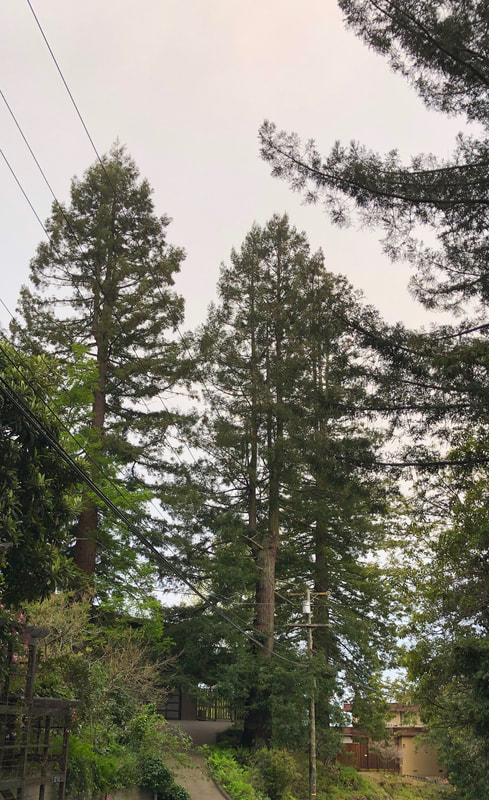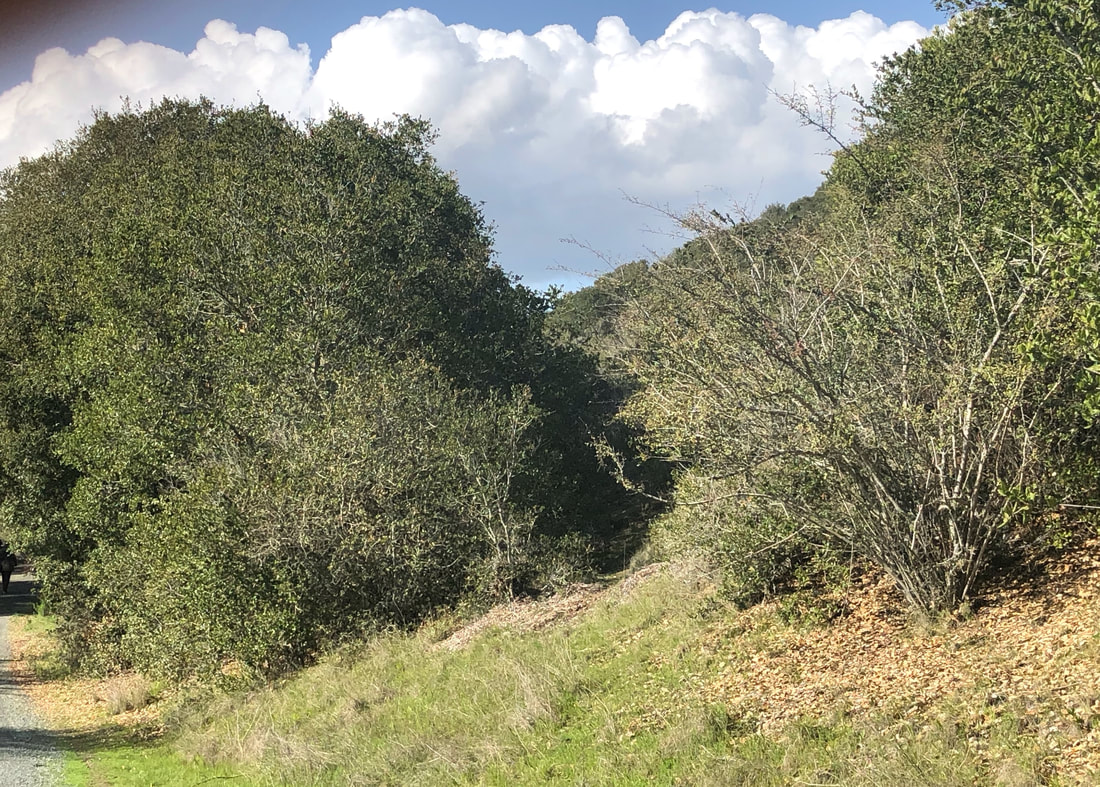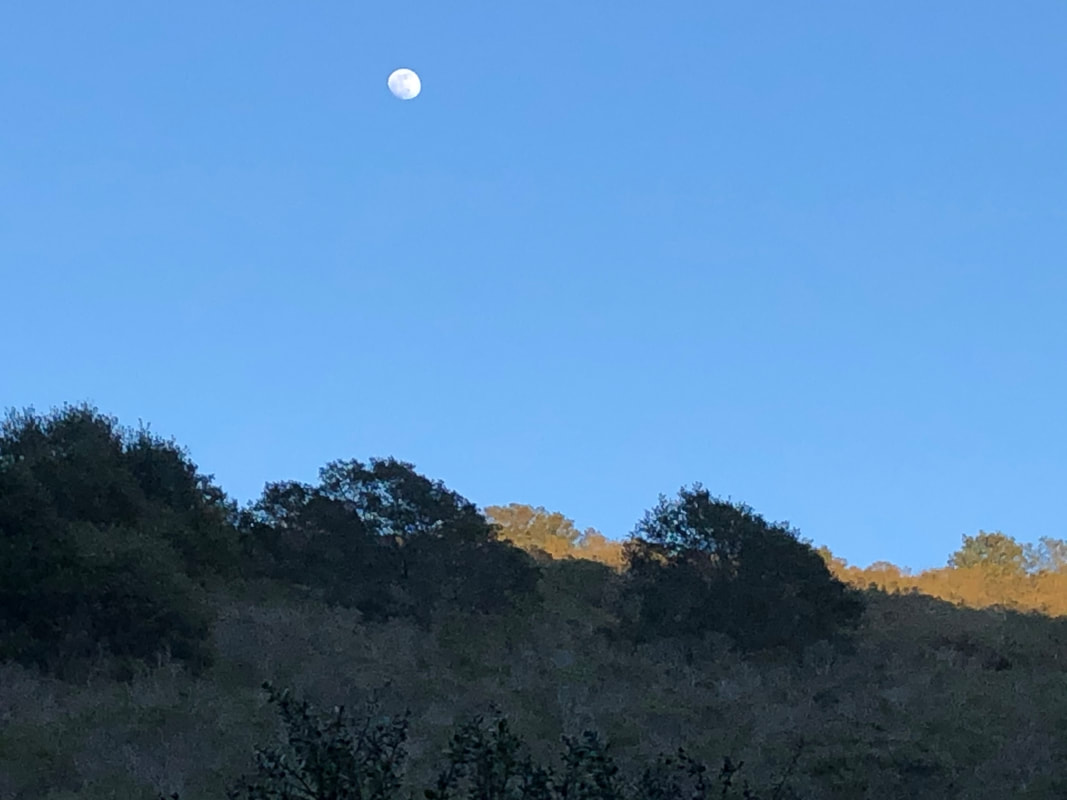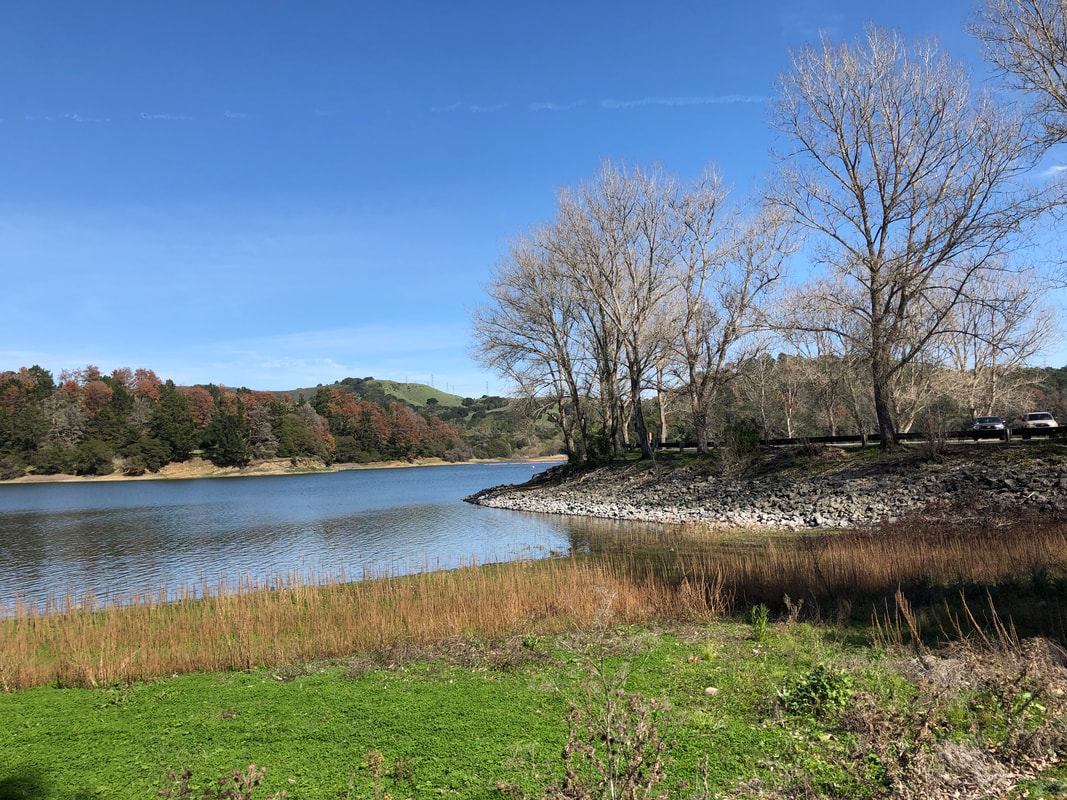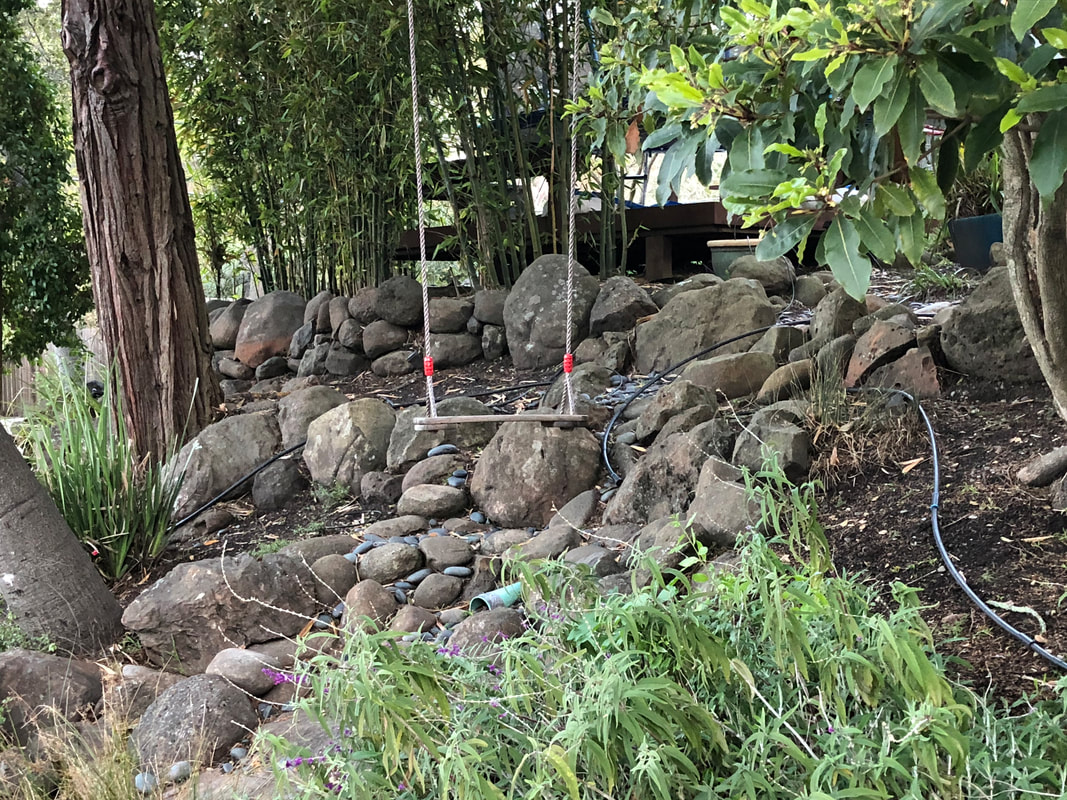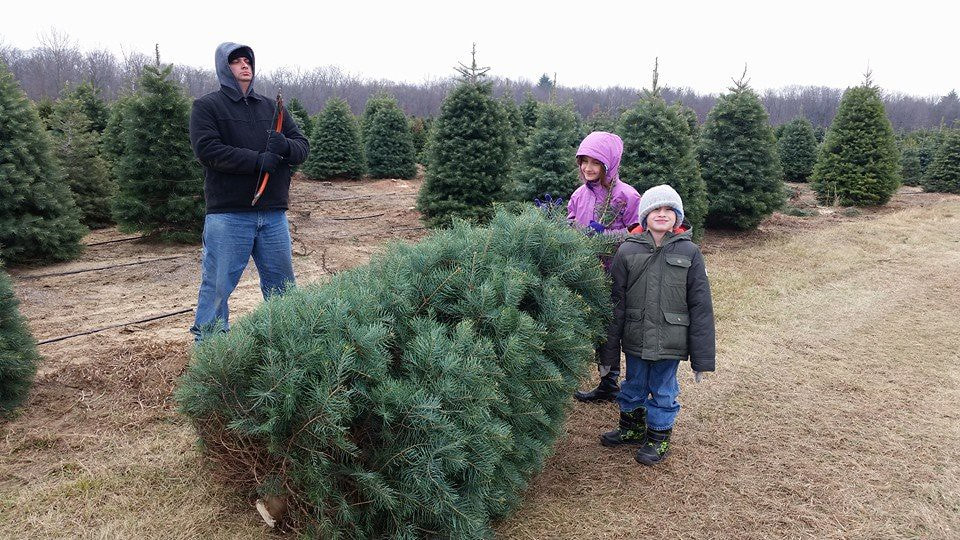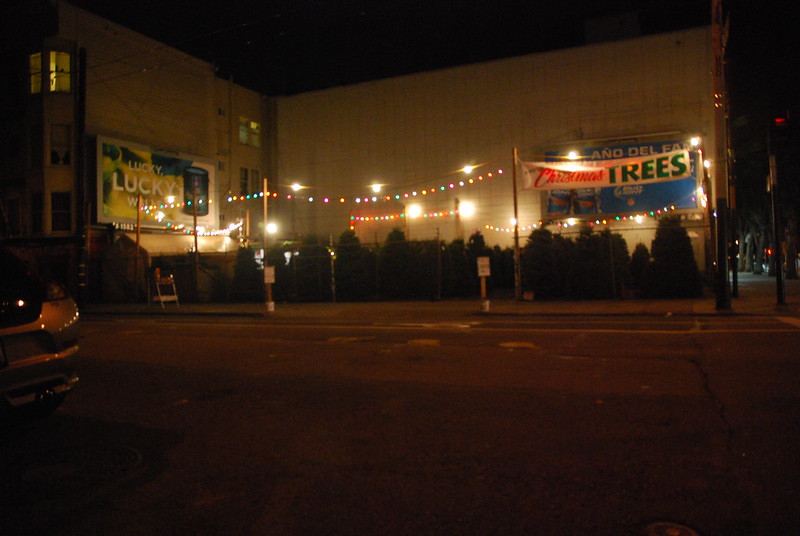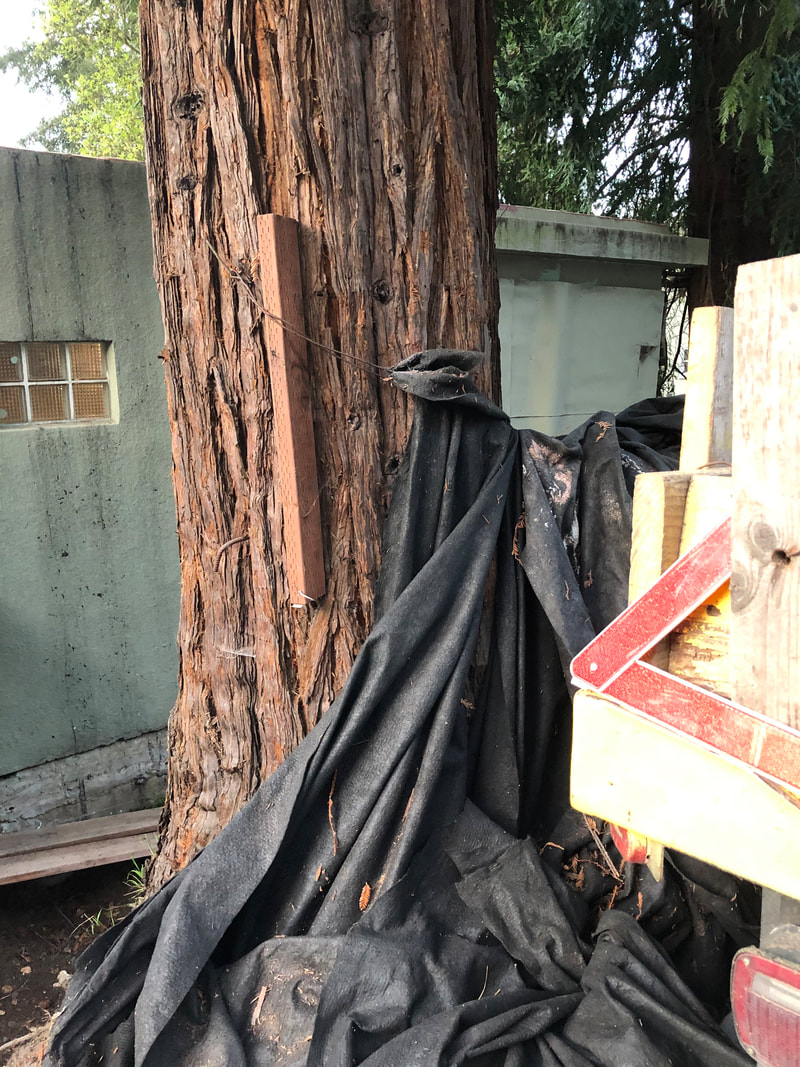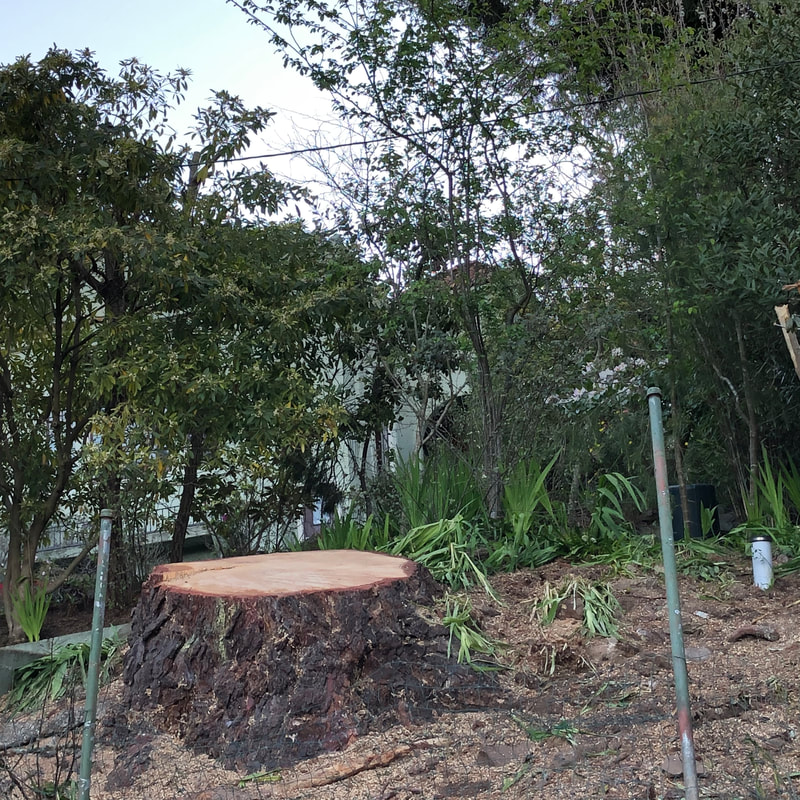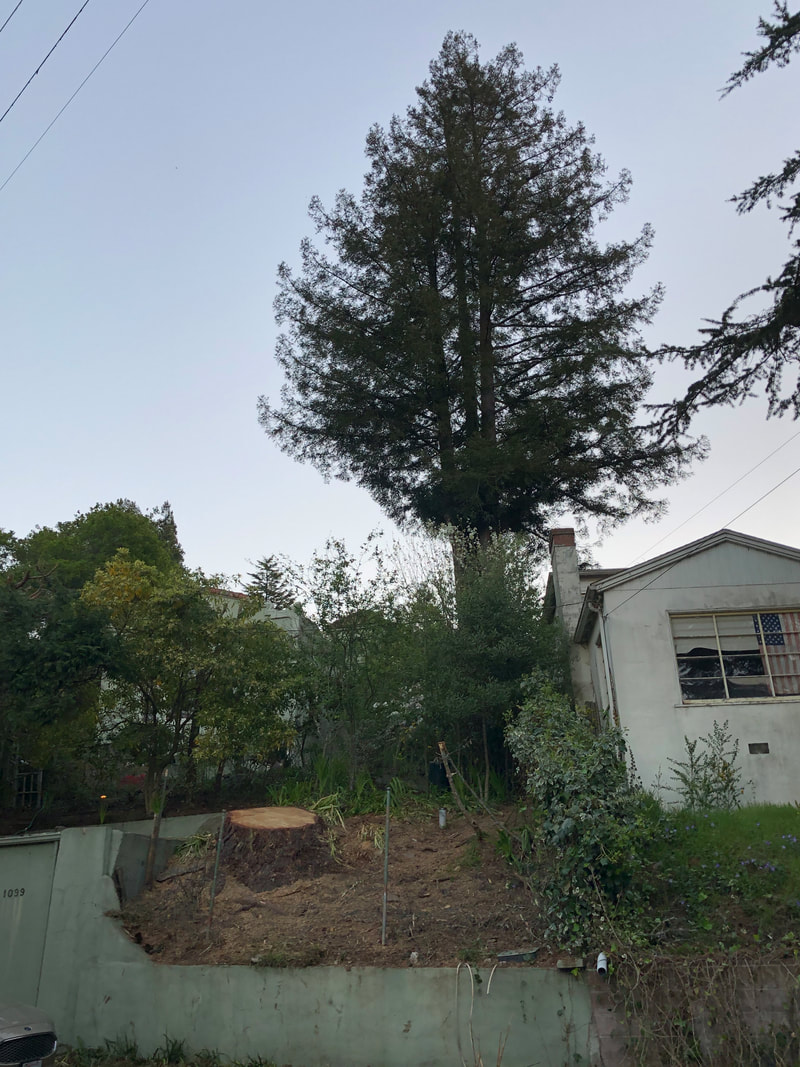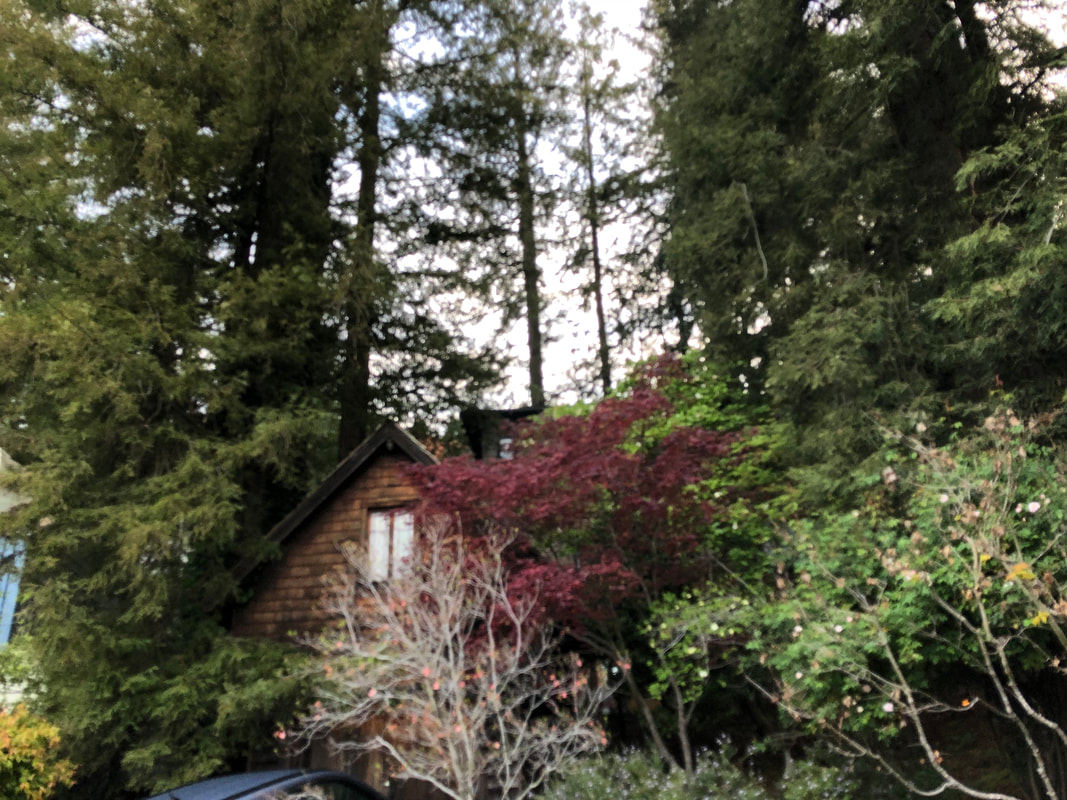What is a tree?
To some, a mere commodity
To be bought for one’s own use
To increase the value
Of the property.
To others an inspiration
To sit beneath and compose
Lyrics to a song, a melody,
Paean of praise
Or an essay in prose.
And to others still,
A fellow living being
To let live and grow
To leaf out, flower,
Spread its seed, as it willl.
-MW
all photos by Mary unless otherwise specified
A tree is a living thing, just as you and I. It is born, grows, lives and dies. And struggles to survive, through any obstacles in its path. And sometimes humans let the trees grow wild, untouched, to fulfill their destiny.
| Humans grow trees and this is good. They plant them to reforest bare areas, to provide wind breaks to keep the soil from blowing away, to plant in city parks and private gardens. These trees provide shade, clean air, and enjoyment. Trees are grown and cut for use as Christmas trees.Yes, the trees are cut, then discarded, but their wood provides mulch and new trees are planted in their stead. Instead of a bare plot of land, there is a miniature human made forest. And when the trees are transported to the city, for a few weeks there is a previously bare lot covered with trees and smelling of the forest, providing a magical place for families to visit and pick out their tree. |
What is Progress?
Earth Day Musings
Then one day, rather suddenly, a barrage of other people from other lands drove in on horses, and covered wagons and sailed in on ships from far away. These people brought animals with them, heavy animals that needed large grazing lands. The new people planted grains for these animals. The landscape was changed and the Native population of humans was decimated rather quickly through disease, loss of their land, and outright violence against them.
A city rapidly grew up, at first chaotic, regularly ravaged by fires. But these humans were resourceful and ambitious. They quickly rebuilt their city, each time making improvements. Permanent buildings were built, sewers and water lines put in, and finally streets were paved. The wildlife moved out of the city into the nearby countryside.
And so the area was on a quick rollercoaster ride of change. Over the years, the humans spread out into the countryside and new cities and suburbs sprang up. The once abundant wildlife grew scarcer. The air and water grew foul. But again, these humans were resourceful and knowledgeable. They learned. And took action.
What did they learn? Through research and observation, they learned to scrub the water and air clean with fancy machines. But they still used gasoline and natural gas and oil. They learned to use windmills and sun for energy. But to do this, they needed land, which they took from the animals. They designed more energy-efficient automobiles and trucks, but they traveled more miles than before. They designated some land as protected so the plants and animals could thrive. But soon, people crowded in here too, talking loudly, leaving trash and demanding that dangerous trees be removed.
Imagine two people standing on Twin Peaks, looking down at the city and across the Bay. What do they see? Below, a landscape of tall, gray or white concrete structures, the area void of trees. Automobiles, the sun glinting off their windshields. Bridges of steel spanning the water. Large ships traversing the Bay. On the other side, the shoreline is lined in concrete, paved roads and rail tracks at its edge. A few marshes remain. Where once there were thousands of pelicans, one flock flies by. On the hills, where there were once large stands of tall redwoods, sit houses and a few leftover redwoods And a gash in the hill, a quarry now abandoned but its damage still evident.
What do they hear? One lone mockingbird on the hill where they stand. Car engines, sirens, a dull roar of traffic.
One turns to the other. “This is progress. Look at how far we’ve come."
The other turns slowly and looks her companion in the eyes. “What is progress?” she asks. “What has been gained? Are the trees healthier? Are the animals better off? And we? Do we live better? In the past, if a dwelling burnt down, the inhabitants rebuilt their tule hut in one day. Earthquakes were of little concern, for there were no large buildings to fall. The people lived in peace and had plenty of food and water. They knew only their little world and did not worry about strife elsewhere. Are we better off than they?”
Her companion was silent. For what could he say?
Progress. A word known only to humans.
To be continued....
